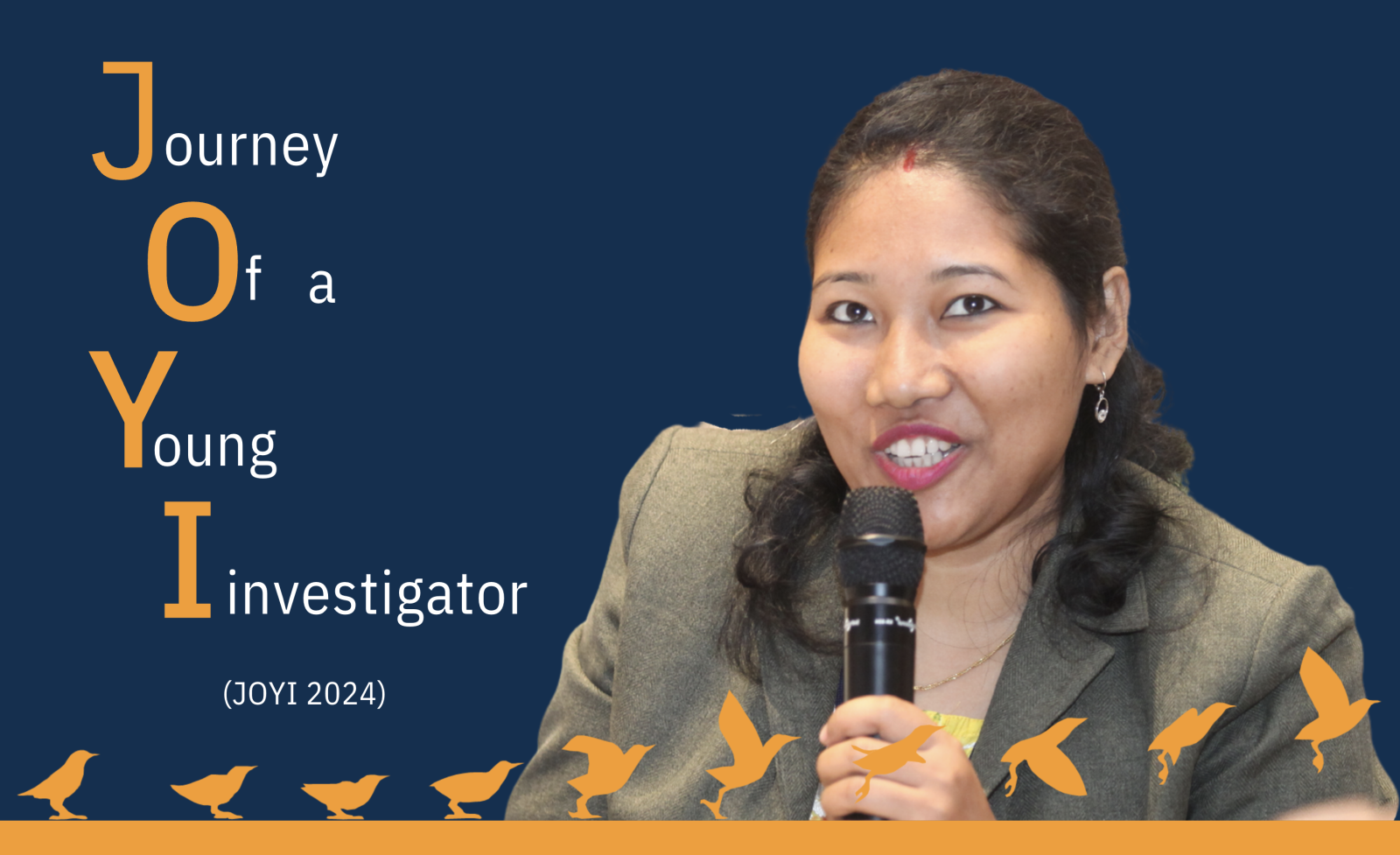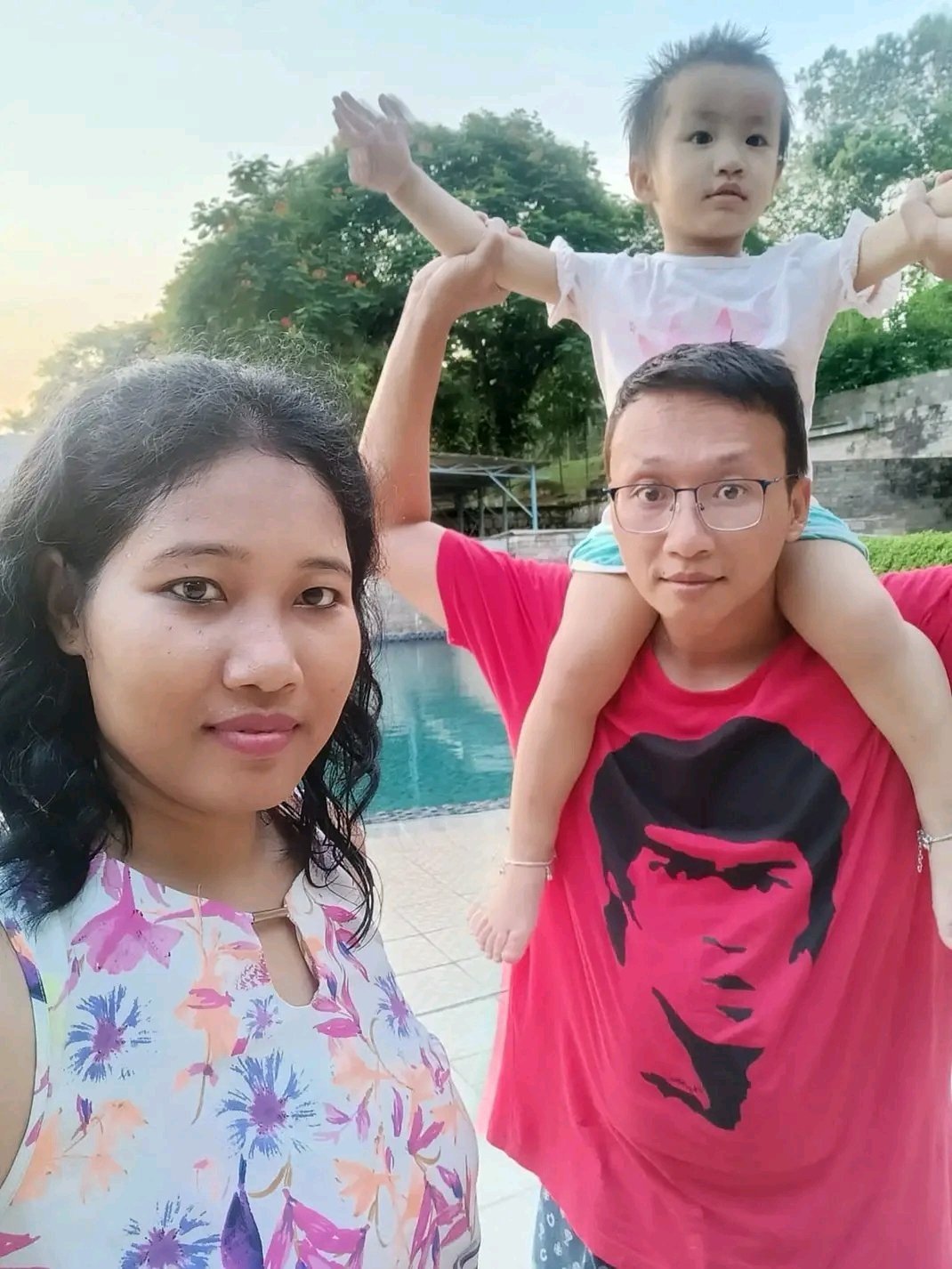Dhanawantari L. Singha is an Assistant Professor at the Department of Botany at the Rabindranath Tagore University, Hojai, Assam. In this third article of the Journey Of Young Investigator (JOYI) 2024 series, she shares her journey from a small village in Assam, her career aspirations, and the challenges and realities of being a mother in science academia.

“Mama chatkhinu,” meaning “Mama, do not go,” is one of the few phrases my 3‑year-old daughter, Nandini, has learned to speak in Manipuri when I leave for the laboratory.
Balancing personal life and research responsibilities becomes challenging in a nuclear family, especially when my husband’s workplace is in another district. For mothers in science, finding equilibrium between career advancement and nurturing a family can be daunting. How, then, do I manage this juggling act? Let me tell you about the challenges and realities.
The career aspirations
Growing up in a village in Assam, I was surrounded by nature, which fuelled my interest in plant life. In 2006, I enrolled in a degree course with Botany as my major at Guru Charan College, Silchar, uncertain about my path ahead. As biotechnology began to emerge, my curiosity led me to pursue a master’s degree in the subject at Sathyabama University of Science and Technology, Chennai. Having faced challenges as a Manipuri-medium student, I recognised the importance of English proficiency in daily communication. Through immersion and practice with my Tamilian and Telugu-speaking roommates, I honed my English speaking skills.
After my master’s degree, encouraged by my MSc. supervisor, J. V Reji, I joined as a Junior Research Fellow (JRF) at Assam Agriculture University, Jorhat. There, fortuitously, the opportunity to pursue a PhD arose, marking the first time non-agriculture students were eligible, albeit with additional agriculture courses. Seizing the opportunity, I became part of the inaugural batch of non-agriculture students, and started pursuing a PhD in 2011.
The pleasant encounter amid independent research opportunities
Under the guidance of my PhD supervisor, Salvinder Singh, I delved into the intricacies of research, nurturing my thirst for knowledge. Completing my PhD in 2017, I set out in search of independent research opportunities. This led me to secure a CSIR Research Associate award and eventually undertake a project as a Principal Investigator (PI) in 2018.

It was during this year, I crossed paths with my husband, Sandeep. After wrapping up my project, I was chosen for the DST-SERB National Post-Doctoral Award 2019, at CSIR-North East Institute of Science and Technology (NEIST), Jorhat. Under the mentorship of Channakesaviah Chikkaputaiah, I refined my skills as an independent researcher, gaining the confidence to mentor PhD and post-doctorate students.
Walking on a tightrope
In 2020, amidst the challenges brought about by the COVID-19 pandemic, I joyfully welcomed my daughter, Nandini, into the world.
As a mom in science academia in India, I found myself walking a tightrope. On one hand, I strived to excel in my research responsibilities, while on the other, I embraced the joys (and challenges!) of parenthood.
The constant push to keep up with research productivity while giving my all to my family was not trivial.
In the midst of the COVID-19 chaos, I continued working during the third trimester with swollen feet (a calculated risk I took). Engrossed in laboratory research, I faced a slew of COVID-related hurdles that ultimately shut down our lab temporarily. But we bounced back — three months post having a baby — I was back in the lab grind. To make for lost time (and work!), I decided to extend my project by three unpaid months, courtesy of the funding agency. Balancing the demands of caring for a three-month-old while working during the challenging period of the pandemic was incredibly taxing for me.

Adding to this, the demanding nature of academic research, with its long hours, tight deadlines, and constant pressure to publish, only added to the complexity of my responsibilities. Nevertheless, amidst these challenges, I got the opportunity to attend the Young Investigators’ Meeting (YIM) 2021 as a Postdoctoral Fellow (PDF) in the online mode. This experience offered invaluable insights into research collaborations and networking, enriching my academic journey despite the hurdles faced.
From dream to reality
In 2023, I fulfilled my dream of mentoring students by joining Rabindranath Tagore University, Hojai, Assam as an Assistant Professor. While I continue to work towards establishing a research facility in my area of expertise, in 2024, I participated in the 16th Young Investigators’ Meeting (YIM 2024) as a Young Investigator (YI). The meeting was an invaluable experience, providing insights into kick-starting a research laboratory from scratch, setting up lab infrastructure, writing grants, and fostering collaborations.
I also had the chance to connect with potential research collaborators who resonated with my vision. Furthermore, I was honoured to receive the IndiaBioscience childcare grant for the meeting. This grant not only offered financial support for my daughter’s attendance but also underscored the recognition of the challenges faced by mothers in academia.
My dual goals in academia: Empowering students and advancing research
I have set two primary goals for myself. Firstly, I aim to instil in my students the unwavering belief that they can achieve anything they set their minds to, regardless of their background or whether they hail from remote corners of India. Secondly, I am committed to establish laboratory facilities equipped to support basic to cutting-edge research. My goal is to offer students the same opportunities that have shaped my own journey.
At the outset, being a mother in science academia in India, I frequently wrestles with feelings of guilt, self-doubt, and imposter syndrome. The relentless pursuit of perfection, compounded by the pressure to excel in both arenas, chipped away my confidence in my own abilities. Despite the myriad challenges, I have slowly crafted strategies to navigate the delicate balance between parenthood and academic pursuits.
One pivotal strategy revolves around effective time management. I prioritise tasks, set boundaries, and carve out dedicated time for both work and family responsibilities.
Balancing the demands of research and teaching while nurturing my daughter — from teaching her ABCs to school drop-offs, quality time together, and enjoying weekends with my husband — is no small feat. I have also recognised the importance of cultivating a robust support network. Drawing strength from my spouse, family members, and colleagues is essential for mothers in science academia as we navigate the intricacies of our multifaceted lives.
I am deeply grateful to my parents, in-laws, and Sandeep for their steadfast support and for granting me the freedom to pursue my dreams. Endless appreciation goes to the divine for nurturing in me the steadfast conviction that all goals are within reach. To my daughter Nandini, who eagerly awaits my return to share moments of play, I offer a special dose of love. I also owe a great deal to the mentors, who have crossed my path throughout my research and academic journey, for shaping the trajectory of my path.